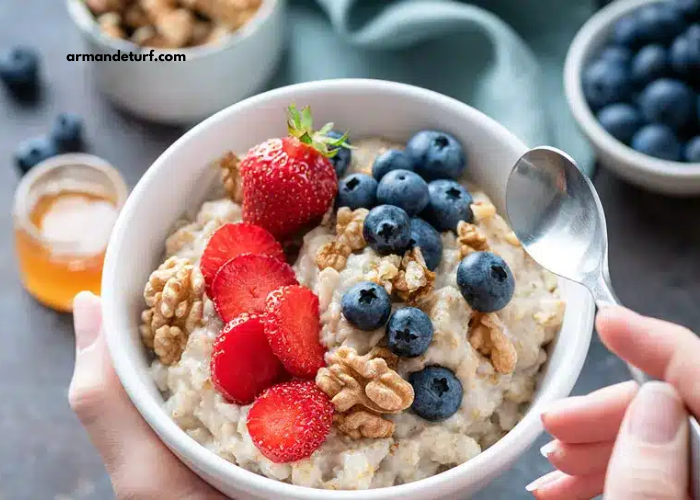Master Your Diet with These 5 Health Steps
In a world overflowing with conflicting nutrition advice, mastering your diet may feel overwhelming. However, transforming your health and lifestyle begins with a few practical steps that are easy to implement, sustainable, and grounded in science. Whether you’re looking to lose weight, boost energy, or simply adopt a more balanced way of eating, this comprehensive guide offers the five essential steps to take control of your diet and live a healthier, more vibrant life.
Why Mastering Your Diet Matters
Your diet has a profound impact on your overall well-being. The foods you consume influence your energy levels, mood, immune system, skin health, and even mental clarity. More than just about weight loss or gain, a well-balanced diet promotes longevity, disease prevention, and optimal performance in daily life.
Poor dietary choices can lead to a variety of health problems, including:
-
Obesity
-
Type 2 diabetes
-
Heart disease
-
Inflammation
-
Digestive disorders
-
Depression and anxiety
The good news? Making smarter food choices doesn’t require drastic changes. With the following five health steps, you can build a strong nutritional foundation and develop habits that last a lifetime.
Step 1: Prioritize Whole Foods Over Processed Products
What Are Whole Foods?
Whole foods are natural, unprocessed or minimally processed foods that retain their nutritional integrity. Examples include fruits, vegetables, whole grains, legumes, nuts, seeds, eggs, and lean meats.
The Problem with Processed Foods
Highly processed foods often contain:
-
Added sugars
-
Unhealthy fats
-
Preservatives
-
Artificial flavorings
-
Empty calories
They can lead to increased cravings, blood sugar spikes, and long-term health issues.
How to Make the Switch
-
Read ingredient labels: Avoid items with long ingredient lists or unfamiliar chemicals.
-
Cook at home: Preparing meals from scratch gives you full control over ingredients.
-
Shop the perimeter: Most whole foods are found around the edges of the grocery store.
By focusing on whole foods, you’re naturally increasing your intake of essential nutrients and fiber while reducing harmful additives.
Step 2: Balance Macronutrients Wisely
Understanding Macronutrients
Your body needs three major macronutrients for proper function:
-
Proteins: Essential for muscle repair, immune health, and enzyme production.
-
Carbohydrates: The primary source of energy.
-
Fats: Vital for hormone production, brain health, and vitamin absorption.
How to Create a Balanced Plate
A balanced diet doesn’t mean cutting out any food group. Instead, aim to include all macronutrients in appropriate portions:
-
50% vegetables and fruits: Rich in vitamins, minerals, and fiber.
-
25% lean protein: Chicken, fish, tofu, legumes, or eggs.
-
25% whole grains or starchy vegetables: Brown rice, quinoa, oats, or sweet potatoes.
Tips for Macronutrient Balance
-
Choose complex carbs over simple sugars.
-
Opt for healthy fats like olive oil, avocados, and nuts.
-
Incorporate plant-based proteins to reduce red meat intake.
Balancing your macronutrients fuels your body efficiently and helps prevent energy crashes, overeating, and nutrient deficiencies.
Step 3: Practice Mindful Eating
What Is Mindful Eating?
Mindful eating involves paying attention to your eating experience without judgment. It’s about appreciating food, recognizing hunger and fullness cues, and eating with intention rather than habit.
Benefits of Mindful Eating
-
Improves digestion
-
Prevents overeating
-
Enhances enjoyment of food
-
Supports weight management
-
Reduces emotional eating
How to Eat Mindfully
-
Eat slowly and chew thoroughly.
-
Avoid distractions like screens while eating.
-
Listen to your body: Eat when you’re hungry, stop when you’re full.
-
Acknowledge your emotions: Are you eating from boredom, stress, or genuine hunger?
Mindful eating helps reconnect you with your body’s natural cues and fosters a healthier relationship with food.
Step 4: Stay Hydrated and Limit Sugary Drinks
Importance of Hydration
Water is crucial for nearly every function in the body, including:
-
Nutrient transport
-
Digestion
-
Joint lubrication
-
Temperature regulation
-
Skin health
Even mild dehydration can cause fatigue, headaches, and concentration problems.
Recommended Water Intake
General guidance suggests:
-
Men: 3.7 liters/day (including all fluids)
-
Women: 2.7 liters/day
This can vary based on climate, activity level, and health conditions.
Reduce Sugary Beverages
Sugary drinks like soda, energy drinks, and fruit juices are a major source of hidden calories and added sugar.
Healthier Alternatives
-
Infused water (with lemon, cucumber, or mint)
-
Unsweetened herbal teas
-
Coconut water (in moderation)
-
Sparkling water with a splash of fruit juice
Proper hydration supports metabolism, skin glow, and helps control appetite naturally.
Step 5: Plan and Prepare Your Meals
The Power of Meal Planning
Planning your meals is one of the most effective ways to stick to a healthy diet. It removes last-minute food decisions and helps you avoid unhealthy takeout or impulsive snacking.
Benefits of Meal Prep
-
Saves time and money
-
Reduces stress
-
Ensures portion control
-
Encourages balanced nutrition
-
Helps track progress
Simple Meal Planning Tips
-
Choose a prep day: Pick one or two days per week to cook and portion meals.
-
Create a weekly menu: Include variety to avoid food fatigue.
-
Stock your kitchen: Keep healthy staples like beans, frozen veggies, grains, and spices.
-
Use containers: Invest in reusable, portion-friendly containers for storage.
A little preparation goes a long way in achieving consistency and mastering your diet over time.
Bonus: Monitor Your Progress & Stay Consistent
Tracking your dietary changes can reinforce your commitment and highlight what works best for your body.
How to Track Effectively
-
Use a food journal or app
-
Monitor how you feel after meals
-
Note changes in energy, digestion, or weight
-
Adjust as needed
Stay Flexible and Realistic
No diet is perfect. Allow room for indulgences and social eating without guilt. The key is consistency, not perfection.
Frequently Asked Questions (FAQs)
Is it okay to have cheat meals?
Yes. Occasional cheat meals can help reduce cravings and make healthy eating more sustainable. Just ensure they don’t turn into cheat days or weeks.
Can I still eat carbs and lose weight?
Absolutely. Carbohydrates are not the enemy. Choosing complex carbs like whole grains and controlling portions can help with weight loss and provide lasting energy.
Do I need to count calories?
While calorie awareness is useful, focusing on the quality of food is more sustainable long-term. Nutrient-dense foods naturally lead to better portion control.
How long does it take to see results?
Most people begin to feel more energetic and notice changes in digestion within 1–2 weeks. Visible results in weight or appearance may take 4–8 weeks with consistent effort.
Final Thoughts: Transform Your Life One Bite at a Time
Mastering your diet is about creating a sustainable lifestyle that works for you—not following the latest fad or restrictive trend. With these five steps—prioritizing whole foods, balancing macronutrients, practicing mindful eating, staying hydrated, and meal planning—you’re not just improving your plate but empowering your life.
Start small, be consistent, and remember: food is fuel, not punishment. The journey to better health begins with what you put on your fork today.



